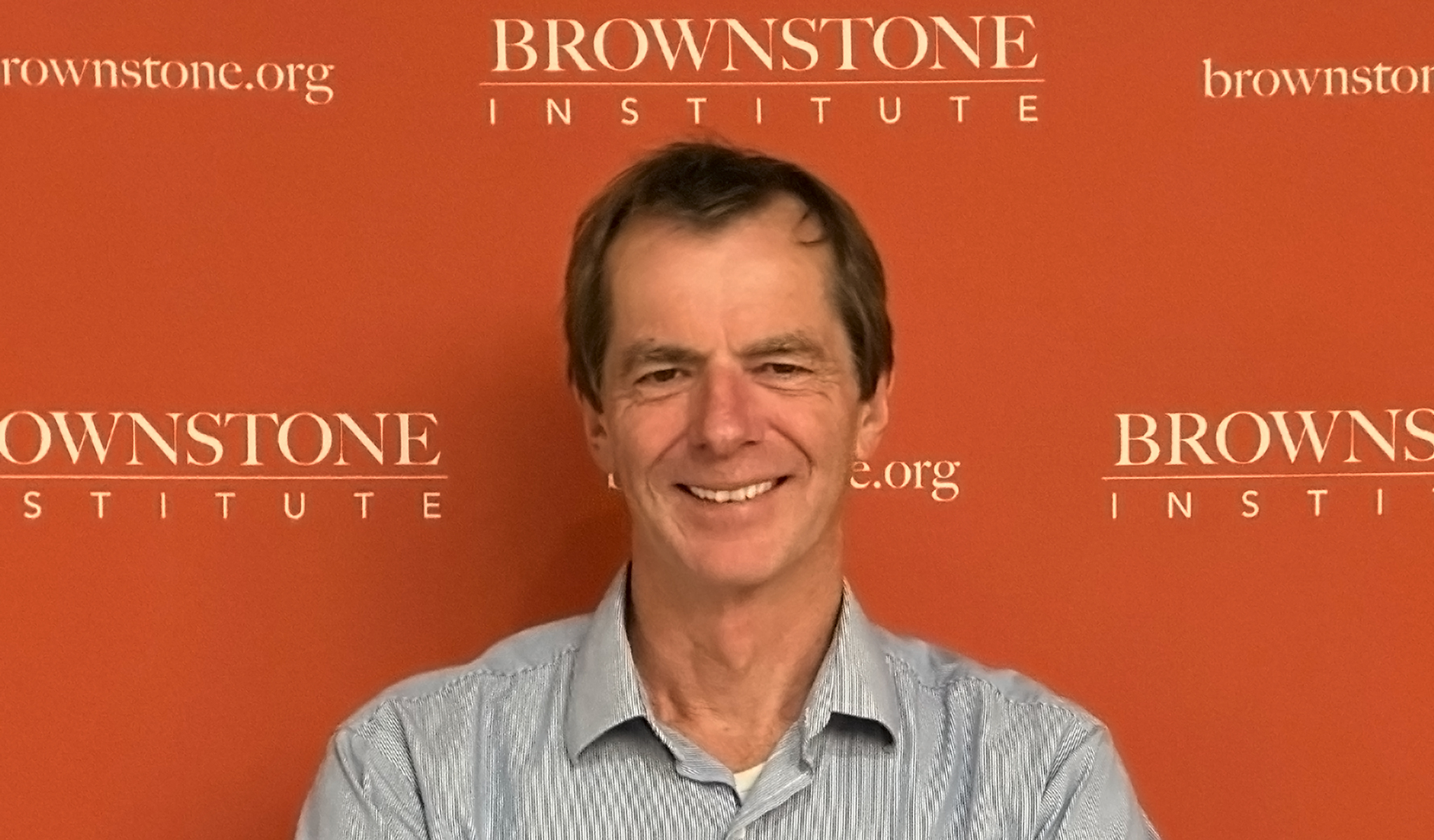In late May of this year, representatives of our governments will meet in Geneva, Switzerland, to vote on acceptance of two documents that, taken together, are intended to transform international public health and the way States act when the Director-General of the World Health Organization (WHO) declares an emergency. These drafts, a Pandemic Agreement and amendments to the International Health Regulations (IHR), are intended to set up legally binding agreements under which States undertake to follow recommendations from the WHO regarding the human rights and healthcare of their own citizens.
Although these agreements will impact on health, economies, and human rights in complex ways, they are still being negotiated by various committees less than seven weeks prior to the intended vote. They have been developed with unusual haste and are intended to proceed without countries having time to fully assess their implications, on a premise of an urgent threat that has already been demonstrated to be unfounded or grossly exaggerated.
The agreements are being promoted by wealthy countries as promoting equity. Yet, the rush to vote and implement will inevitably undermine equity by preventing States with less resources from equally participating in their development and having time to assess impact on their more fragile healthcare environments. This approach has not been seen so apparent in international health since the colonial era.
This is a poor and dangerous way to develop legally binding agreements. Rather than designing a coherent pandemic package that is proportionate to risk and burden and sensitive to the legitimate context of individual States, the world risks rapidly institutionalizing a confusing set of legal regimes and overriding authorities reflecting the wants of competing global actors who shouted loudest, as ill-advised in a recent public letter. The WHO, when inaugurated, was supposed to represent something better.
What is needed now is for countries, either those of lower income being marginalized once more by this process, or others that still hold that colonialism was wrong, to insist on a postponement of the process in order to simply ensure health, legal, and ethical integrity. ‘Equity,’ as the WHO Director-General likes to say.
The drafting of the Open Letter below, addressing these issues, was led by three lawyers with experience with the WHO, within the UN and in international treaty law, Dr. Silvia Behrendt, Assoc. Prof Amrei Muller, and Dr. Thi Thuy Van Dinh. It simply calls upon the WHO and Member States to extend the deadline for the adoption of the amendments to the International Health Regulations and a new Pandemic Agreement at the 77th WHA to safeguard the rule of law and equity. To proceed with the current deadline, against their own legal requirements, would not just be legally wrong but demonstrate unequivocally that equity and respect for States rights have nothing to do with the WHO’s pandemic agenda.
Dear Dr. Tedros, Director-General of the World Health Organization
Dear Co-Chairs Dr. Asiri and Dr. Bloomfield of the WGIHR,
Dear Co-Chairs Dr. Matsoso and Mr. Driece of the INB,
Dear national delegates of the respective working groups,
Both the Working Group on Amendments to the International Health Regulations (2005) (WGIHR) and the International Negotiating Body (INB) negotiating the Pandemic Agreement were mandated to deliver the definite legal wording of the targeted amendments of the International Health Regulations (IHR) as well as of the Pandemic Agreement to the 77th World Health Assembly (WHA), taking place at the end of May 2024. These processes have been ushered through in haste to “capture a post-COVID-19 moment,” despite evidence that there is limited risk of another pandemic occurring in the short-to-medium term. In other words, there is time to get these measures right.
Yet, due to the speed in which these processes have occurred both negotiation processes are threatening to deliver illegitimate policies by violating the very objectives and principles of equity and deliberation which are proclaimed to be safeguarded through the pandemic law-making process under the auspices of WHO. Consequently, the politically set deadline for adoption at the 77th WHA must be lifted and extended to safeguard the lawfulness and transparency of the processes, clarifying the relationship between the amended IHR and the new Pandemic Agreement, and ensuring an equitable and democratic outcome.
The WGIHR’s Non-Compliance with the IHR Excludes a Lawful Adoption at the 77th WHA
The adoption of any amendments of the IHR at the 77th WHA can no longer be achieved in a lawful manner. Currently, the WGIHR keeps negotiating the draft amendments, with the aim to finalise the package of proposed amendments during its 8th meeting scheduled for the 22nd – 26th April that is then to be presented to the 77th WHA. This modus operandi is unlawful. It violates Article 55(2) IHR which sets out the procedure to be followed for amending the IHR:
‘The text of any proposed amendment shall be communicated to all States Parties by the Director-General at least four months before the Health Assembly at which it is proposed for consideration.’
The deadline for the Director-General to circulate the package of proposed amendments to the IHR to States Parties lawfully in advance of the 77th WHA has passed on the 27th January 2024. As of yet, the Director-General has not communicated any amendments to the States.
The IHR is a multilateral treaty binding both States that ratified the IHR and the WHO, including subdivisions of the WHA like the WGIHR. They must abide by the binding procedural rules of Article 55(2) IHR and cannot suspend these rules arbitrarily.
During the public webcast of 2nd October 2023, the issue was referred to WHO’s Principal Legal Officer, Dr Steven Solomon, who explained that since the draft amendments come from a subdivision of the WHA, the 4-month requirement of Article 55(2) did not apply. However, his opinion disregards the fact that Article 55(2) does not make any distinction as to which State, group of States or specific part of the WHA propose the amendments. Moreover, in the Terms of Reference of the IHR Review Committee (2022) the timeline of the WGIHR’s work was set at ‘January 2024: WGIHR submits their final package of proposed amendments to the Director-General who will communicate them to all States Parties in accordance with Article 55(2) for the consideration of the Seventy-seventh World Health Assembly.’ If the WGIHR and WHO purposefully violate the IHR, the rule of law is indeed undermined, potentially entailing international responsibility for the organisation and/or individuals in charge.
Inseparable Processes of IHR and New Pandemic Treaty
The available drafts of the WGIHR and INB imply that the two processes of the WGIHR and INB cannot stand independently but are inseparable from each other. Particularly, the new draft Pandemic Agreement cannot be adopted prior to revising the IHR because it needs to build upon the revised structure, material scope and institutions of the IHR (especially given wording of IHR core capacities currently in the March 7th, 2024 negotiating text of the Pandemic Agreement). Disrupting challenges like the significant overlap ratione materiae, the competences and relationships between the newly established treaty bodies, and vs Member States, as well as the long-term financial implications for the health budget, etc. – require detailed clarification prior to adoption.
Equity and Democratic Legitimacy
Disregarding procedural obligations under the IHR and leaving the relationship between the amended IHR and new Pandemic Agreement nebulous not only undermines the international rule of law, it also undercuts the spirit of Article 55(2) of the IHR (2005), which guarantees Member States four months lead-time to review IHR amendments to promote democratic legitimacy, procedural justice, and to better ensure equitable outcomes.
States need at least four months to thoroughly reflect on the implications of proposed amendments for their domestic constitutional legal orders and their financial capacities. They must seek political and/or parliamentary approval prior to the adoption of the respective resolutions at the WHA. This is especially germane given the unique legal status of adopted IHR amendments that will enter into force automatically unless a State Party actively opts out within a very short timeframe of 10 months.
Equity is stated by WHO to be at the heart of the pandemic preparedness and response agenda. Many low- and middle-income countries do not have representatives and experts present in Geneva during the entire parallel negotiation processes, have their representatives’ discussing matters in less familiar languages, and/or must rely on diplomatic group/regional representations. This introduces inequity to the ability to fully participate in the negotiation process within the WGIHR and the INB developing the Pandemic Agreement. Richer countries have more ability to input into drafts and greater resources to review their implications. These manifestly unfair negotiation processes are contrary to the spirit and stated intent of the entire process. Ensuring equity, transparency and fairness requires an adequate time to discuss and consider what are intended to be legally-binding agreements.
Markedly Exaggerated Urgency Claim
Whilst some have argued that urgency in developing new pandemic management instruments is justified by a rising risk and burden of such infectious disease outbreaks, this has recently been demonstrated to be a markedly exaggerated claim. The evidence bases on which the WHO have relied, and partner agencies including the World Bank and G20, demonstrate that the risk of naturally-derived outbreaks is not currently increasing, and overall burden is probably declining. This suggests that current mechanisms are indeed working relatively effectively, and changes must be viewed carefully, without undue urgency, in the light of the heterogeneity of threat and competing public health priorities across WHO Member States.
Appeal not to Adopt the IHR Amendments or Pandemic Agreement at the 77th WHA
The two working groups are requested to follow the UN Principles and guidelines for international negotiations, UN A/RES/53/101, and to conduct negotiations in a spirit of good faith and ‘endeavour to maintain a constructive atmosphere during negotiations and to refrain from any conduct which might undermine the negotiations and their progress.’ A rational timeline without political pressure for results will safeguard the current law-making process from collapsing and prevent potential political abandonment, as experienced in case of the WHO Research and Development (R&D) Treaty.
One of the original reasons to initiate the amendment process of the IHR (2005) was the WHO’s express concern that States did not comply with their obligations under the IHR during the Covid-19 Public Health Emergency of International Concern. With their failure to keep to the 4-months review period, the WHO and the WGIHR themselves show their open disregard for their legally binding duties under the IHR. A resolution with proposed amendments to the IHR for adoption at the 77th WHA can no longer be presented lawfully. Consequently, the Pandemic Agreement also needs to be delayed, as both processes are interdependent.
This is an urgent appeal to the WHO and its Member States to safeguard the rule of law and procedural and outcome equity by allowing fair input and deliberation. To do so, it will require lifting and extending the deadline, thus rendering the possibility for a more future-proof legal architecture for pandemic prevention, preparedness and response in-line with international law and its normative commitments.
Respectfully yours.
Note. This letter was written to be used as States and other parties see best, with or without attribution, to further the cause of equity, proportionality and evidence-based policy making in international public health.
It can be signed by the public, who will be the recipients of harm of this rushed and misguided approach to public health, at: https://openletter-who.com/
Published under a Creative Commons Attribution 4.0 International License
For reprints, please set the canonical link back to the original Brownstone Institute Article and Author.



